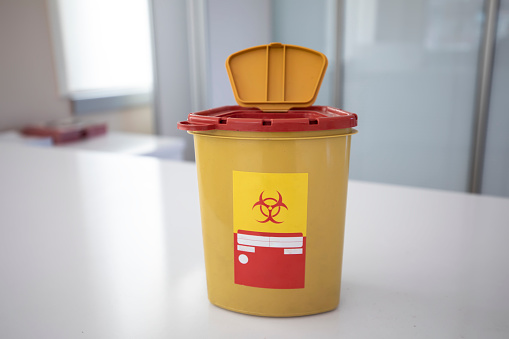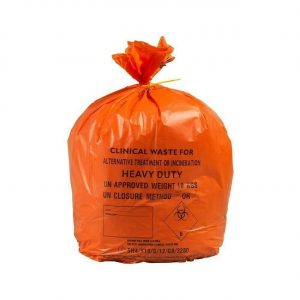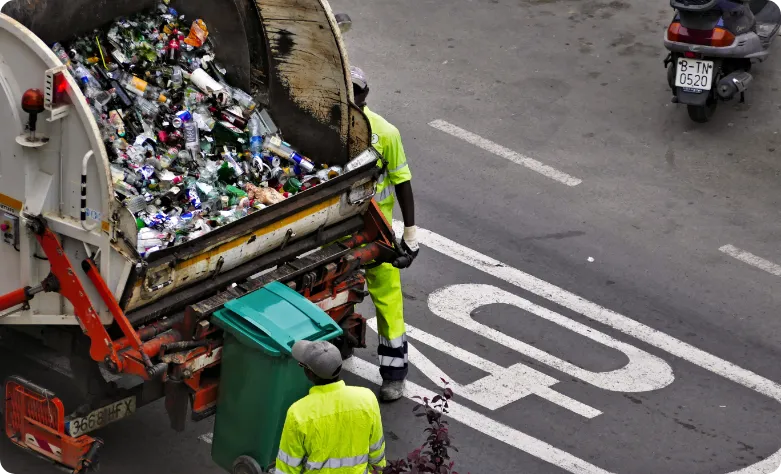Sharps waste can be a mess business, which is the reason the disposal of these wastes must be done in a responsible way. Sharps are cytotoxic sharps bin that include any item that may cut or puncture skin.
It is commonly thought that sharps waste consists of anything which is sharp enough to cut or cut skin; however it’s not the only items that are designed to be used in this manner.
There is no room for error when it comes to the disposal of sharp objects, as there’s a chance of injury and the repercussions for law enforcement when it’s not handled promptly.
The Five W’s (Who, What, When, and Why) will provide everything you need to be aware of Sharps disposal and the best way to dispose of them.
Who Makes Sharps Garbage?
Sharp waste is generated by a variety of businesses. Sharps waste is recyclable that is utilised by certain companies more than 10-30 times a day, or just once.
As we mentioned earlier there are other businesses that require the disposal of sharps. However, the most popular kinds of employees who perform the sharps bin disposal include such things as:
- Tattooists
- Chiropodists
- Beauty Therapists
- Nurses
- Doctors
What Is It?
What are the objects that need to be place in sharps garbage bins?
It’s vital to ensure that you’re keeping the correct items into your bin for sharp items.
- Needles
- Scalpels
- Stitch cutters
- Glass ampoules
- Sharp instruments
It is also a requirement that all syringe attachments or injectors are dispose also. This can include the tube and the vacationer.

Where Can You Get Rid Of Trash?
The safest method for disposal of sharps is placing them in a container for sharps. This can be provided by your doctor or specialist contractor pharmacy.
Did you be aware that these bins are equip with an exclusive lid that can accommodate any sharp object inside and ensures they’re safe for everyone?
Many Sharps Box disposal businesses provide a professional service for sharps. They will also help you decide the most effective method for your specific needs. They will also offer some of their knowledge on how to manage the sharps disposal.
When Is It Suitable To Take It?
This could be coordinate by the construction contractor.
Many workplaces that utilise cytotoxic waste products collect these items and then change them frequently. Most contractors collect every week, but they can be configure to meet the needs of the client, in relation to the amount they can dispose of waste that is sharp.
What’s the Reason?
What is the reason you’d need Sharps rubbish bins?
There are three reasons the reason why disposal of waste containing sharps is essential They are:
The health risks associated with the exposure of sharp products from waste
Environmental Benefits
Legislation
Since sharp objects are commonly use to puncture or cut on the skin’s surface the risk of being expose to other people result in potential for infection, and transmitting diseases or illnesses.
Additionally, it reduces the chance of contracting diseases or diseases by sharp objects in bins that are safe will ensure that they can be reuse using the latest technology that the vast majority in modern-day waste management businesses make use of.
Being aware of the laws regarding sharps waste and regulations that govern sharps waste as well as Hazardous Waste Regulations 2005 be a complete nightmare.
The dangers of sharps wastes being not properly manage is evident and obvious, the law must ensure that proper measures are in place to minimise the risk.
The principal goal of regulations regarding waste is to improve the disposal of garbage and ensure the health of people as well as the natural environment as a whole.
Remove Sharps Containers
There is no single solution to dispose of containers that contain sharps. The process require is base on the method through which sharps waste is initially produce.
If you’re contemplating the various options that are available, it is important to remember that the principal purpose is to ensure storage, disposal and elimination of waste, including sharps.
What Is The Classification Of Sharps Waste?
To decide on the most efficient disposal technique, sharps have to be classified. Different classifications include:
Non-Hazardous Sharps
Sharps bins that are not hazardous to dispose of or disposing of Sharps Bins that isn’t hazardous is possible in health facilities where sharps are employ when the patient doesn’t have an infection, and doesn’t need treatment. For instance, blood donors.
Sharps That Are Infectious
Syringes and needles use for treating patients may be infect with blood-borne viruses. Anyone who comes into contact with these substances is at risk.
Particularly doctors and nurses are at great risk of being expose to infections such as Hepatitis B Hepatitis C, Hepatitis B as well as HIV. Due to the inherent danger from infectious waste it’s deem hazardous and should be treat according to the guidelines.
Sharps That Are Contaminated By Pharmaceuticals
Needles and syringes can be fill with the residues of pharmaceuticals. This poses additional risks for health professionals and anyone who comes into contact with these items.
There is also the issue that the procedure for disposal depends on the used. For instance, sharps that are contaminated by the cytotoxic and cytostatic medications are considered Dental Waste Management and therefore require a totally different disposal procedure than sharps used for administering.
Dispose Of Containers For Sharps
The category of sharps waste forms the base for the decisions to be deal with and the methods you can dispose of containers with sharps:
Non-Hazardous Sharps Recycling Options
Sharps waste that isn’t dangerous poses less threat for the wellbeing of the general public than hazardous dental waste disposal there are a range of options. This can be do with steam sterilisation, an autoclave, or high-temperature burning (HTI).
Some waste disposal companies advocate HTI because it eliminates the necessity of separating sharps that are hazardous and non-hazardous waste.
Treatment Options For Hazardous Sharps Waste
It is crucial to exercise extreme care to decrease the health risk for the public, and to reduce the risk of injuries cause by sharps waste. In the case of sharps debris, which is dangerous, burning at high temperatures will ensure that it’s destroy completely.

What Do You Consider You’re At Risk For Others?
Waste generators for medical usage of all kinds, such as hospitals, surgical centers, rehabilitation facilities, hospitals and more, result in sharps that need to be dispose of every year.
Although the majority of doctors working in the medical profession are aware of the regulations for properly disposal of waste, but it is the reality that an enormous amount of medical waste, especially sharps, are treat incorrectly. Check these:
Sharps Could Contain Pathogens Which Could Be Harmful To People And Our Environment
The dangerous waste create by the medical industry can be harmful and infectious. Sharps and needles that are dispose of incorrectly contain tiny amounts of pathogens and insulin, as well as other blood products, medicines and bodily fluids. They could also carry diseases like HIV and Hepatitis.
Unintentionally exposure to these types of wastes can have serious consequences, like poisoning and infiltrating water as well as soils, and causing serious illnesses to both animals and human beings.
Sharps Are Disposed Of In The Wrong Manner Could Be A Health Risk For HealthCare Professionals
The administration of thousands of injections is each year by hospital personnel and other professionals on medical issues.
If the sharps and equipment use during the procedure are not clean properly, doctor’s nurses, doctors as well as each other staff member are at risk of accidental exposure.
Summary
It’s fairly obvious if you use sharp objects in your workplace on a regular basis or occasionally, you must be within the guidelines of the laws to ensure that employees, patients and clients are safe.
Utilizing a competent contractor to take care of your dental waste disposal is essential because their knowledge is crucial to ensure that you dispose of sharps efficiently in a safe and efficient manner.
